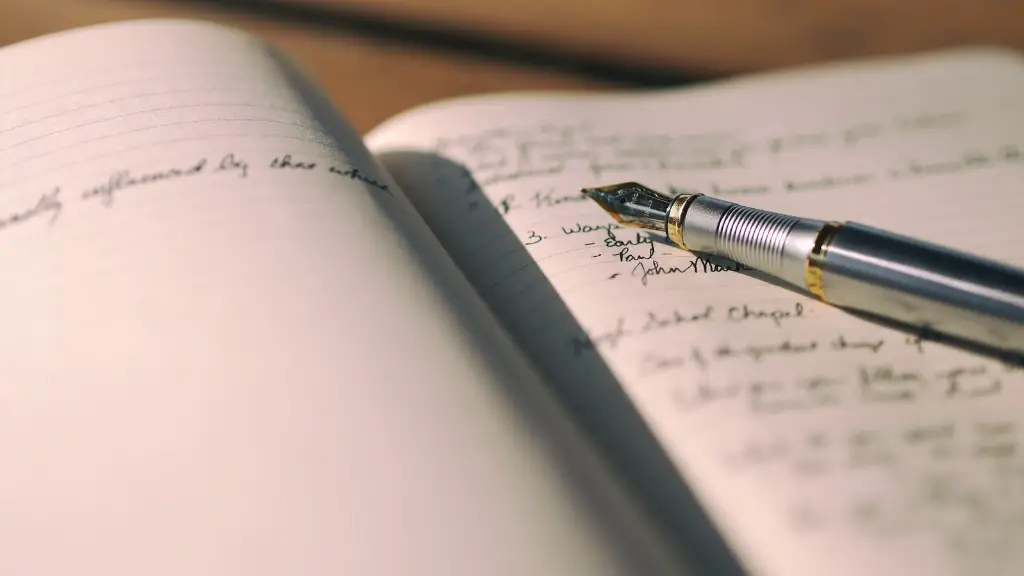How to Write Good Poetry
Writing good poetry requires creative thinking, imagination, and the right words. To write effective poetry, one must understand the structure and language of poetry and the nuances of expression that make it so powerful. Whether it’s a haiku, a sonnet, or a free verse, it’s important to consider each element and make sure they work together to express your desired emotion. Here are 8 steps to writing effective poetry.
Take Time To Think Before Writing
Poetry is about expressing a powerful emotional message, so it’s essential to take a moment to think about what you want to say. Consider the topic, mood, and the emotion you want your poem to capture. Visualize the goal in your mind, and when you’re ready, start to write.
Choose the Right Language and Words
Finding the right words is key to making your poem powerful and convincing. Avoid using too many clichés, instead focus on choosing less common words and phrases that properly convey your message. For example, use “somber” instead of “sad,” or “ love-drunk” instead of “excited.” Expressing something new in an old way can make your poem more effective.
Pick an Appropriate Form
Poetry comes in many forms, and each form has its own rhyming pattern and meter. Consider the type of poem you’d like to write and choose the appropriate form. For example, if you want to express a romantic sentiment, a Shakespearean sonnet would be the perfect form for you.
Learn About Meter and Rhyme
Rhyme and meter are essential elements of poetry, and making sure that your poetry is properly structured is one of the most important aspects of writing good poetry. Learn about the different types of meter, such as iambic pentameter, and the rhyme schemes, such as the ABAB or ABCB pattern.
Structure Your Poem
Once you’ve chosen the right form and understand the basics of meter and rhyme, it’s time to structure your poem. Arrange the lines of your poem so that they are effective in conveying the emotion or idea of your poem. Make sure the lines follow the meter and rhyme scheme, and consider adding elements such as alliteration and repetition.
Bring out Emotion and Imagery
Using imagery and conjuring up a vivid picture for the readers is essential for writing effective poetry. Good poetry uses expressive words, concrete language, and vivid details to invoke emotion in the readers. Use metaphors and similes to bring out the emotion and better tie your words together.
Edit and Revise
Lastly, remember to edit and revise your poem multiple times until you are satisfied. Make sure that your poem is consistent and cohesive, and that it flows well. Don’t be afraid to be bold and think outside the box. With patience and creative thinking, you can write a powerful and effective poem.
Focus on Word Choice
Word choice is key to writing good poetry, so be sure to choose the words that best express your ideas. Aim for concise and vivid language, rather than long and winding sentences and descriptions. Playing with synonyms or changing the order of the words can help give the poem a different perspective.
Pick a Standout Topic
Your topic can be anything that inspires you, but make sure it’s something that stands out from the crowd. It can be a challenge, a love story, or a dream, and it should evoke emotion in the readers. Pick something that you’re passionate about and use your poem to express your feelings.
Create Unique Meters and Rhymes
If you want your poem to stand out, you can create your own meters and rhymes. Play with the words and be creative with the patterns and rhythms until you come up with something unique and memorable. Make sure to vary the length of the verses and be mindful of the meter and its effect on the poem.
Start Writing
Now that you have all the elements, it’s time to start writing! Get into the zone and capture all that emotion into words. Don’t be afraid to go back and forth with the meter and rhyme scheme and tweak the words as you go along. As you write, have fun with it, and don’t be afraid to take risks.
Bring Attention to the Details
Details can make or break a poem, so make sure to pay close attention to the tiny details. Make sure the meter and rhyme scheme are balanced and easy to follow, and that the meaning of your poem is clear. Small changes can make a big difference, so keep going until you feel satisfied with your poem.
Keep Training and Improving
Once you’ve written your poem, set it aside and give yourself some space. Revisit the poem after a few days to read it with fresh eyes. Have someone else read it, and take their feedback into consideration. With time and practice, you can become a great poet.
Study the Techniques of Great Poets
To become a great poet, it’s important to study the techniques of the great poets that have come before you. Read their work and pay attention to their use of meter, rhyme, and expression. Reflect on their writing and try to even replicate it, as this can help you gain an understanding of poetry.
Expand Your Knowledge
Gain an understanding of poetry by exploring different forms and genres. In addition to traditional poetry, challenge yourself by writing a villanelle, a pantoum, or even more experimental forms. Learning and understanding different forms and language can help your work stand out.
Engage in Writing Prompts
Writing prompts are great tools to help stimulate creative thought and learn more about the craft of poetry. They can help you practice your writing skills, and they can also lead you to discover something new. Use writing prompts to push your creativity and hone your skills as a poet.
Take It Slow and Have Fun
Write according to your own rhythm and pace. Don’t write too fast, as you may miss out on details and ideas. Take breaks in between and make sure that your mind is relaxed and your environment is stimulating. Most of all, enjoy the process and have fun with it!




